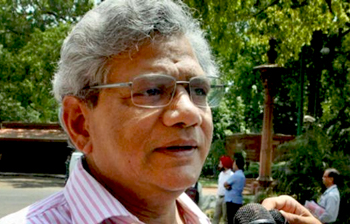 Washington, Jul 28: The controversy over Indian MPs' letters to President Barack Obama for denying visa to Narendra Modi has taken a new turn with a California-based forensic document examiner certifying that the signatures of the lawmakers are "original and authentic" and not a cut and paste job as claimed.
Washington, Jul 28: The controversy over Indian MPs' letters to President Barack Obama for denying visa to Narendra Modi has taken a new turn with a California-based forensic document examiner certifying that the signatures of the lawmakers are "original and authentic" and not a cut and paste job as claimed.
"Using accepted principles and methods of forensic examination, it is my opinion that the Q1-Q3 (three pages of Rajya Sabha MPs' letter) document was created in a single event, and that the signatures found upon it are original/authentic wet ink signatures," said the report after a forensic examination of the letter.
A similar finding was made in respect of the letter by Lok Sabha members.
The forensic examination of the handwritings on the two letters to Obama by members of Rajya Sabha and Lok Sabha on November 26 and December 5 last year respectively, which were re-faxed to the White House on July 21, was done by Nanette M Barto, approved forensic document examiner, in California.
The examination was prepared at the request of Coalition Against Genocide (CAG) campaigning against Modi after some parliamentarians, notably CPM leader Sitaram Yechury, MP Achutan (CPI) and KP Ramalingam (DMK) denied having signed the letter to Obama.
CAG, a broad alliance of about 40 Indian American organisations, has been campaigning against US visa for Modi.
When contacted for reaction to the forensic examination report, Achutan maintained that he did not remember to have appended his signature to a memorandum like this.
All that he remembered was that he had signed a representation expressing anguish at the detention of Muslim youths in different parts of India, especially in northern states, by branding them as terrorists on flimsy grounds, he said.
Ramalingam said this was a privilege matter which has to be given to Chairman Hamid Ansari. "I have already said I have not signed the letter," he said.
Yechury, who had earlier said that he had not signed the letter and his purported signature on the document, was a "cut and paste job" is away in Pyongyang on a visit as part of a parliamentary delegation to North Korea. He could not be reached for his comments.






Comments
Add new comment